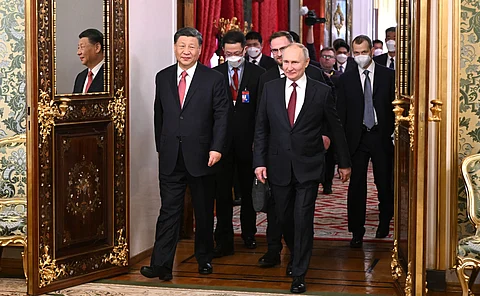

China has halted the sale of drones to Ukraine amid escalating accusations from Kiev that Beijing is assFkisting Russia in its ongoing military campaign.
According to Ukrainian President Volodymyr Zelensky, China has cut off sales of the Mavic drone, a platform originally designed for surveillance, but which has since been modified by both Ukrainian and Russian forces to deliver explosives. The Mavic is manufactured by the Chinese company DJI.
Despite the ban on sales to Ukraine, Zelensky claims that Mavic drones continue to be shipped to Russia, where they are assembled in local factories that reportedly host “Chinese representatives.”
The allegations come amid intensifying claims by Ukrainian officials that China is playing an active role in aiding Russia’s military operations. Earlier this week, Ukraine’s Foreign Intelligence Service (SVR) chief, Oleh Ivashchenko, accused China of supplying 80% of the key electronic components used in Russian drones. He also stated that over 20 Russian military factories are receiving Chinese-supplied materials, including special chemicals, gunpowder, and critical drone parts.
Last month, Ukraine raised diplomatic pressure after capturing two Chinese nationals reportedly fighting for the Russian military. While Ukrainian officials acknowledged that the individuals were private citizens under contract with the Russian army and not formally acting on behalf of Beijing, the incident prompted Ukraine to summon the Chinese ambassador twice. During one of those meetings, Kiev claimed it presented evidence of China's involvement in the war—allegations that China firmly denies.
Although China officially maintains a neutral position on the war in Ukraine, its public statements have increasingly aligned with Moscow. During a recent state visit to Russia, Chinese President Xi Jinping signed a joint declaration with President Vladimir Putin emphasizing the need to address the “root causes” of the conflict—a phrase Russia frequently uses to reject calls for an immediate ceasefire.
Moscow argues that an unconditional ceasefire would allow the West to rearm and reorganize the Ukrainian military, prolonging the conflict rather than resolving it.